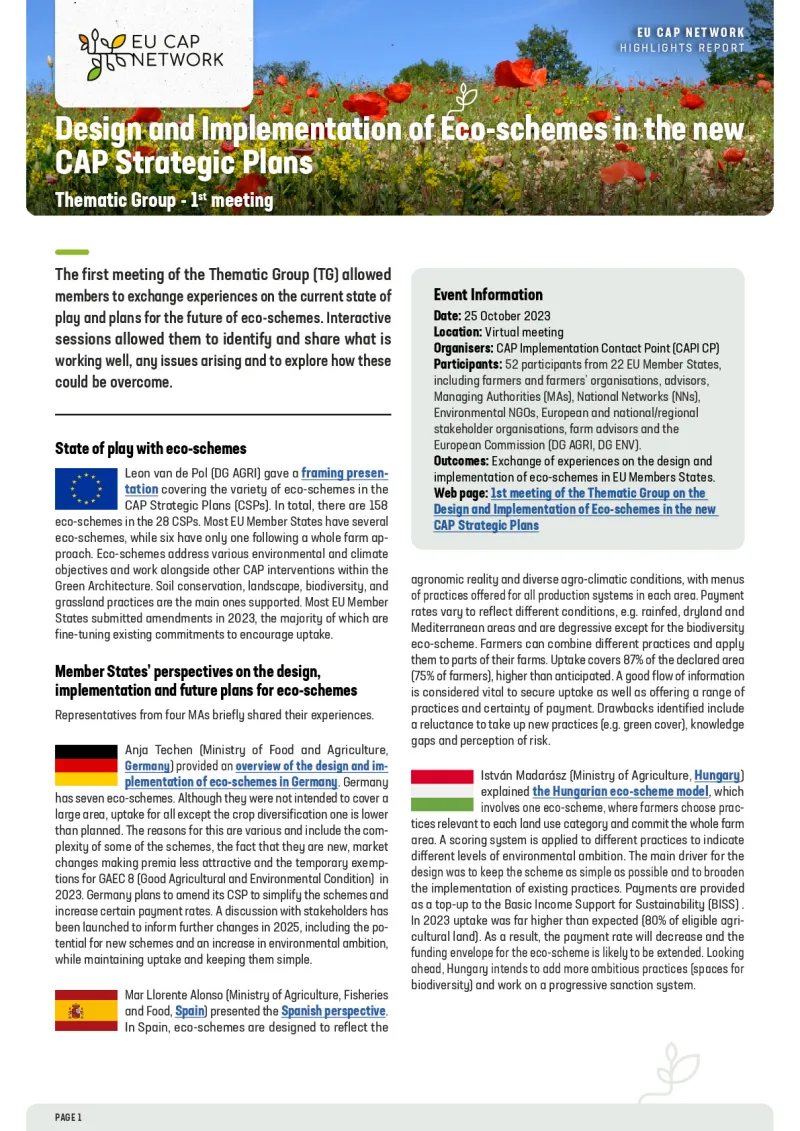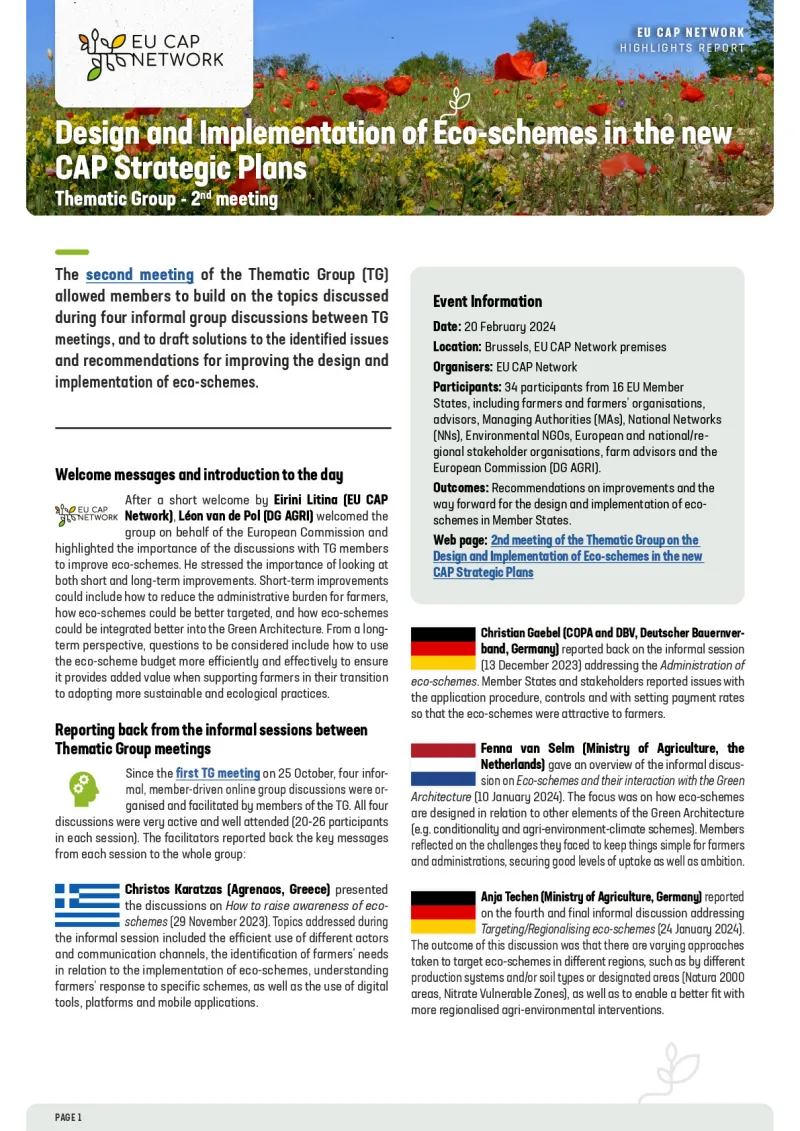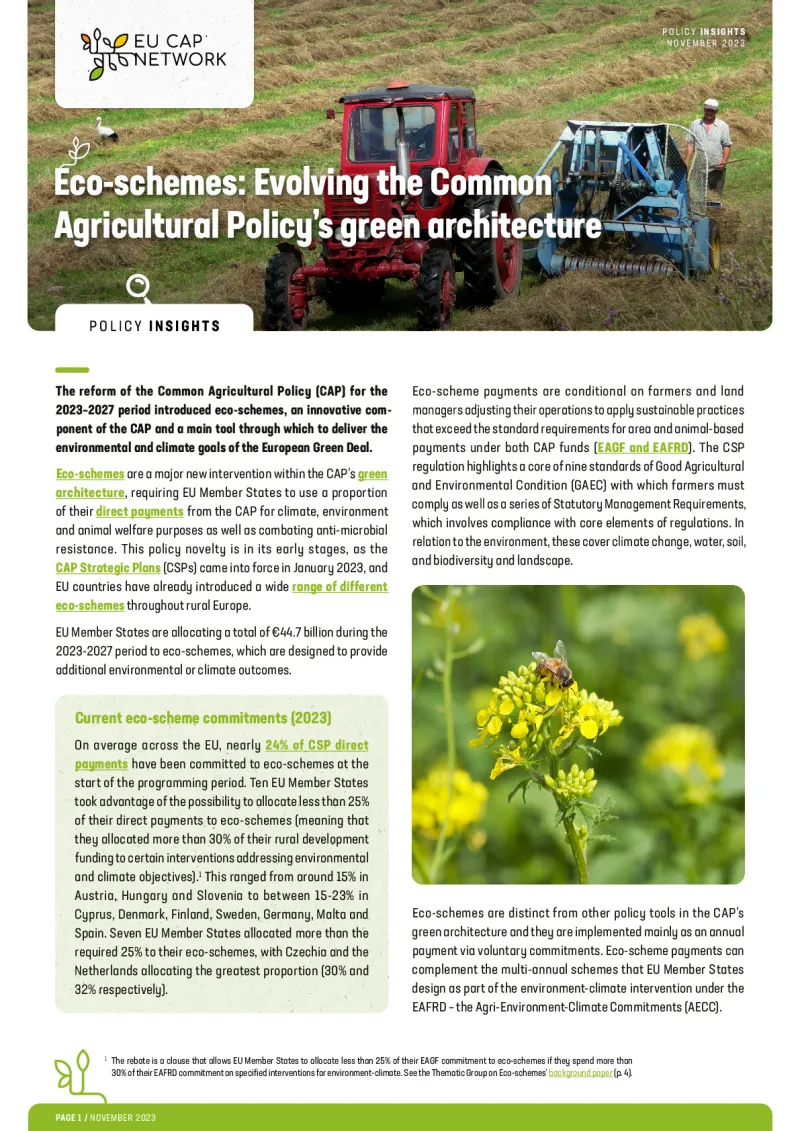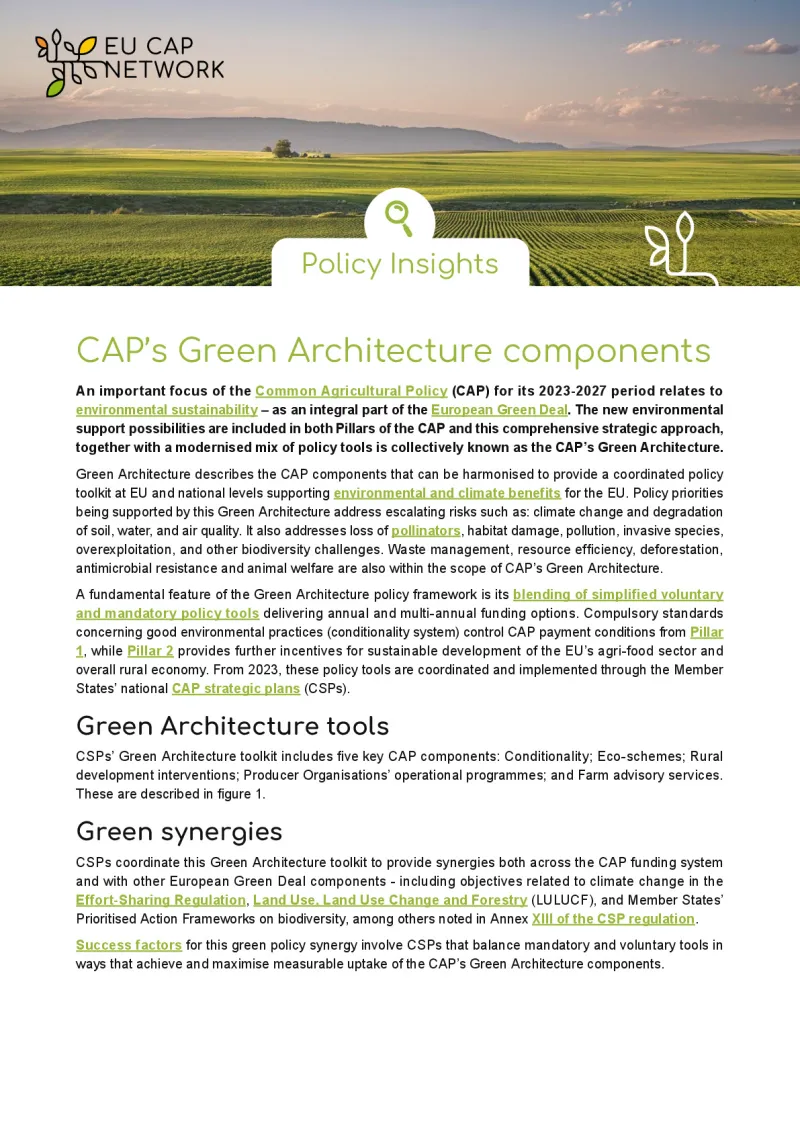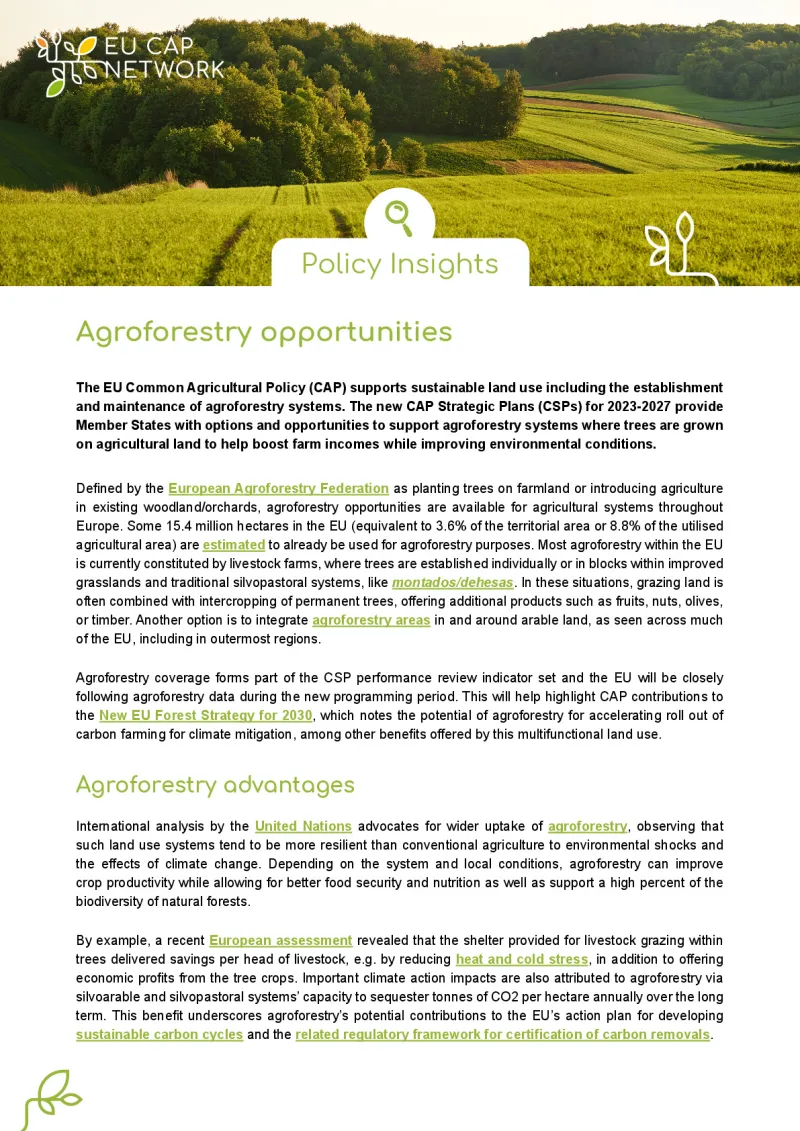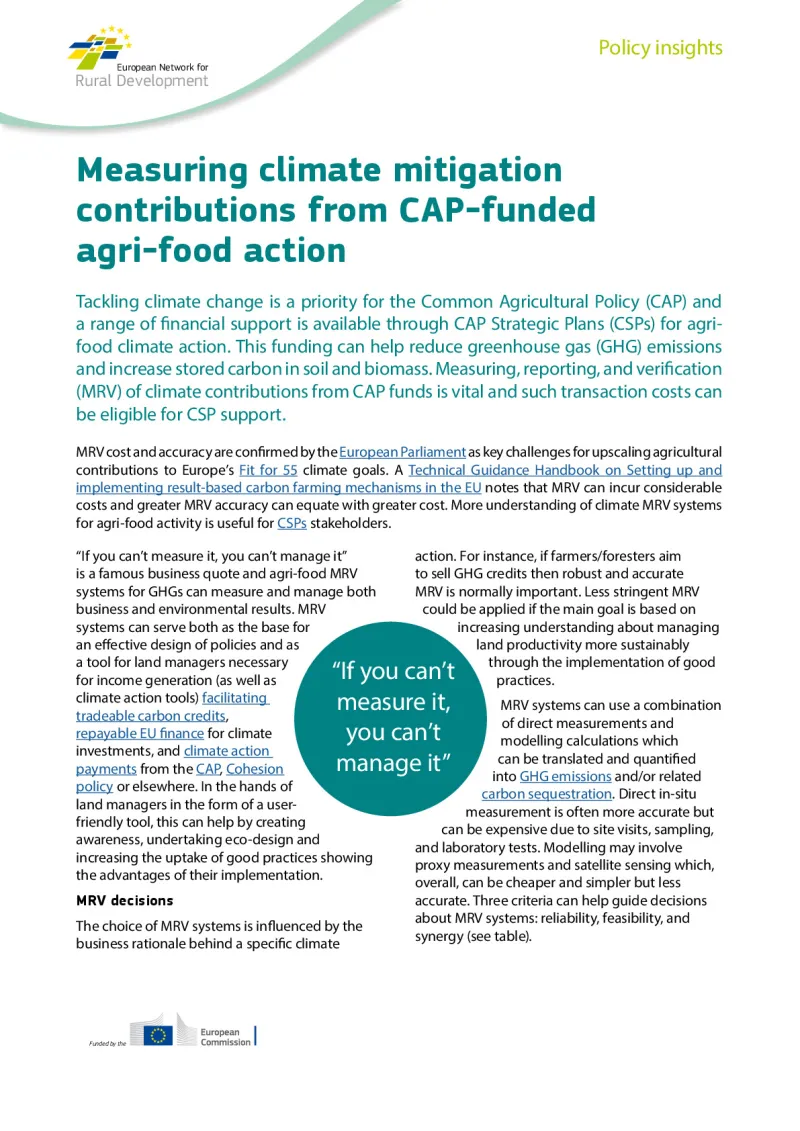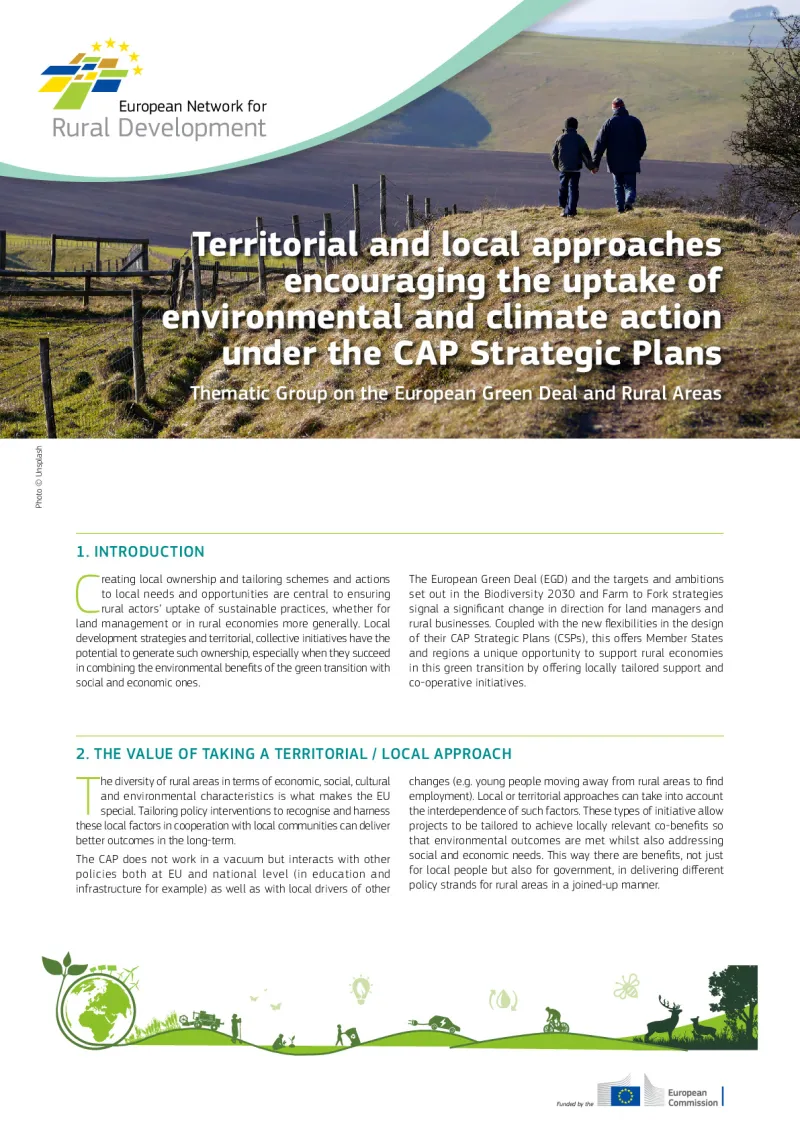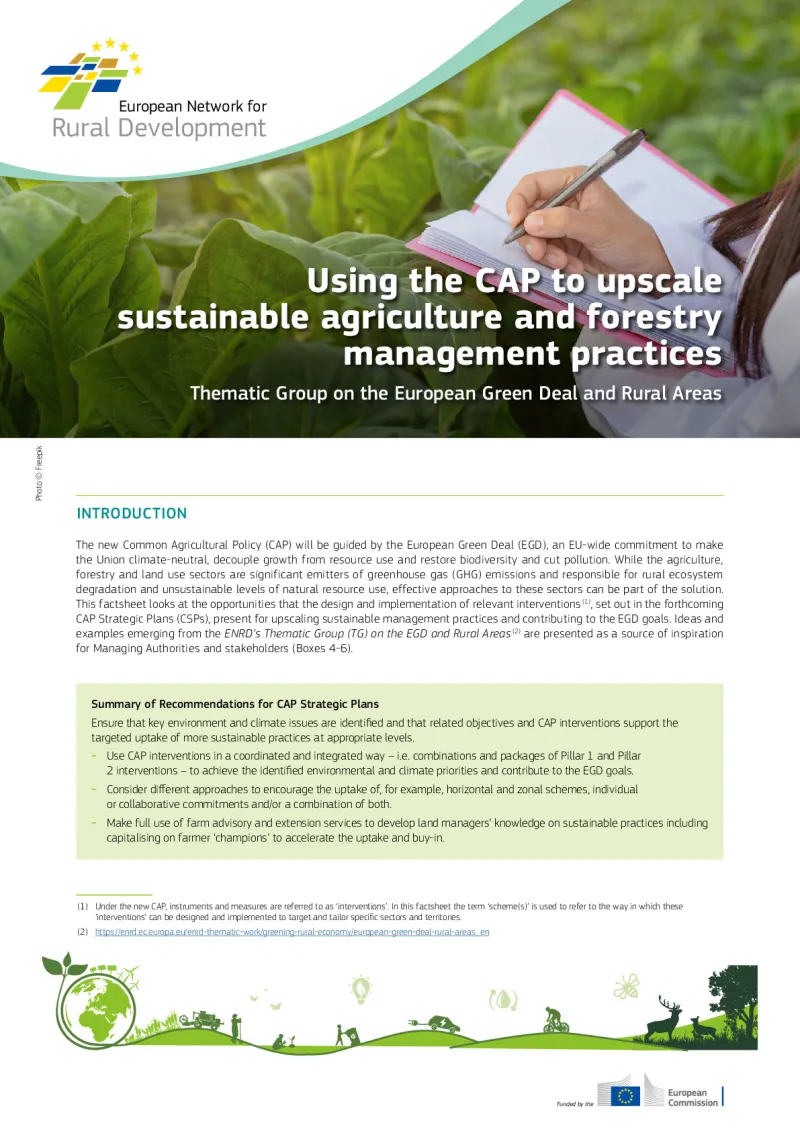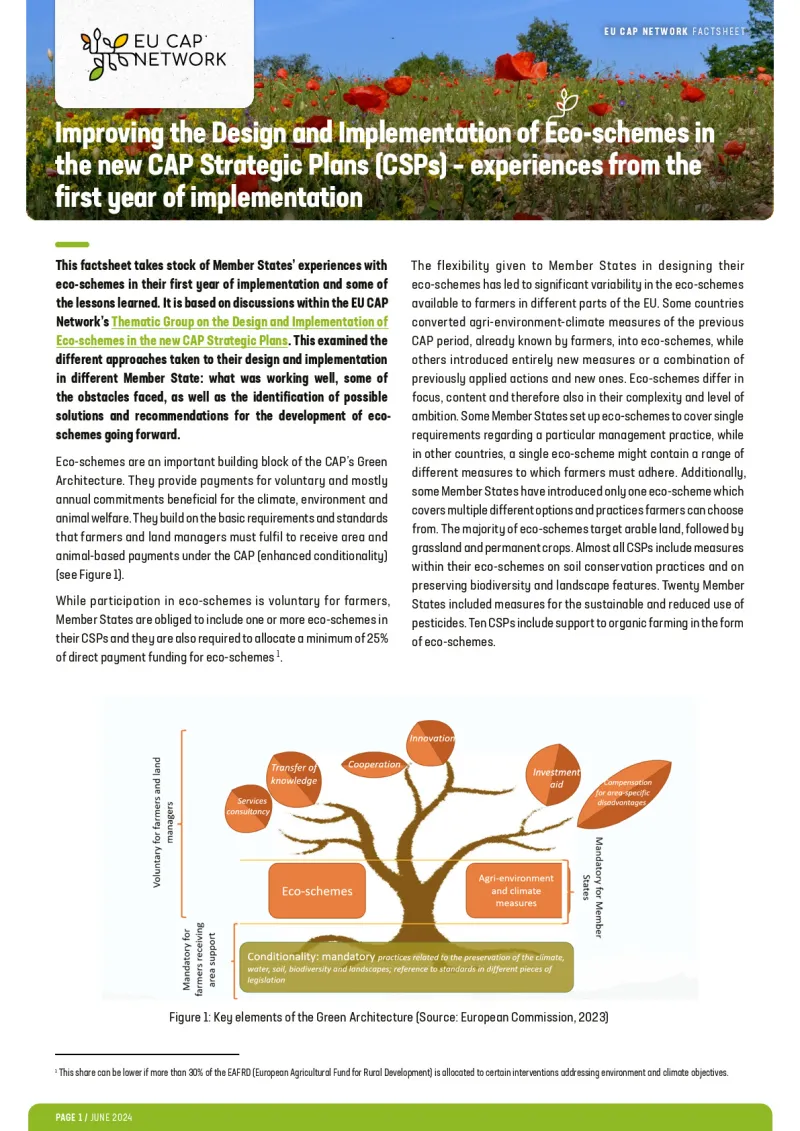Thematic Group on the Design and Implementation of Eco-schemes in the new CAP Strategic Plans
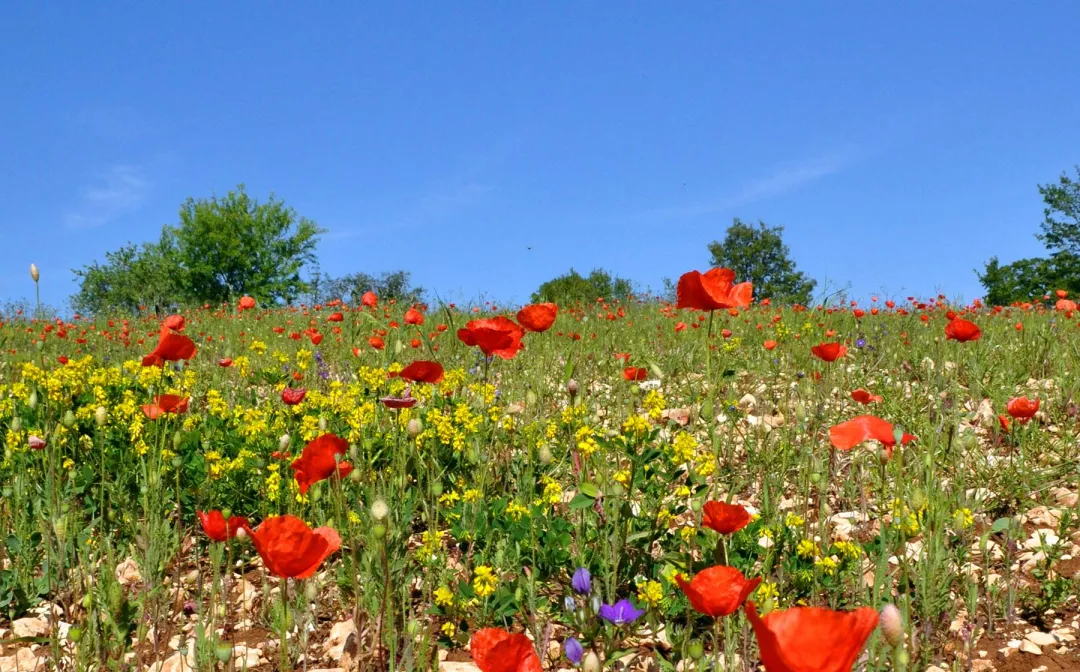
Eco-schemes are a major new intervention under the direct payments part of the CAP for the 2023-27 period, focused on addressing climate, environment, animal welfare, and antimicrobial resistance. Member States must allocate at least 25% of their financial envelope for direct payments to these schemes. On average across the EU, eco-schemes account for 23% of direct payment allocations. As such, they have an important role contributing to the achievement of the European Green Deal and the targets and objectives set out in the Farm to Fork Strategy and the Biodiversity Strategy.
Member States had a great deal of flexibility as to how they designed their eco-schemes. This has led to significant variability in the final eco-schemes available to farmers in different parts of the EU, in terms of the number of eco-schemes on offer, their focus, content and therefore also their complexity and level of ambition.
Eco-schemes are an important “building block” of the CAP’s green architecture which includes a wide range of tools to improve the environmental and climate performance of agricultural activities. It is therefore important that eco-schemes are assessed while considering their interlinkages with the full range of green architecture tools, including agri-environment-climate commitments, investments, support to organic farming, and other relevant interventions.
The implementation of eco-schemes is in its early stages, as the CAP Strategic Plans (CSPs) came into force in January 2023. Therefore, this is a good moment to reflect on the range of eco-schemes currently being implemented and share experiences on levels of farmer engagement, what is working well and where improvements might be made for coming years.
This Thematic Group (TG) was an opportunity to be part of a committed group of experts and relevant stakeholders engaging in real EU-wide networking, sharing experiences and contributing to wider policy reflection.
The objectives of this TG were to:
- Share experiences on the different approaches to the design of eco-schemes in terms of the environmental objectives that have been prioritised;
- Explore the relative merits of the approaches taken and whether there are lessons to be learned for the future;
- Explore issues relating to implementation, particularly how eco-schemes have been promoted and how farmers have reacted to their introduction, to identify success stories as well as challenges and common issues faced, and how to overcome these;
- Develop ideas and recommendations for improvements that could be made toward both eco-scheme design and/or implementation in future years.
If you have any question, please contact us at thematicgroup2@eucapnetwork.eu.
You can find useful resources about this theme further down in this page and in our Publications section.
Thematic Group meetings
1st meeting of the Thematic Group on Design and Implementation of Eco-schemes in the new CAP Strategic Plans
- CAP Implementation

2nd meeting of the Thematic Group on the Design and Implementation of Eco-schemes in the new CAP Strategic Plans
- CAP Implementation

